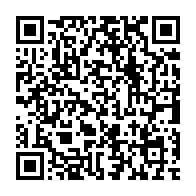(1) Freedom and independence of electronic, print and all other types of media is guaranteed, but does not extend to any expression specified in Article 33 (2).
(2) The State shall not–
- (a) exercise control over or interfere with any person engaged in broadcasting, the production or circulation of any publication or the dissemination of information by any medium; or
- (b) penalise any person for any opinion or view or the content of any broadcast, publication or dissemination.
(3) Broadcasting and other electronic media have freedom of establishment, subject only to licensing procedures that–
- (a) are necessary to regulate the airwaves and other forms of signal distribution; and
- (b) are independent of control by government, political interests or commercial interests.
(4) All State-owned media shall–
- (a) be free to determine independently the editorial content of their broadcasts or other communications;
- (b) be impartial; and
- (c) afford fair opportunity for the presentation of divergent views and dissenting opinions.
(5) Parliament shall enact legislation that provides for the establishment of a body, which shall–
- (a) be independent of control by government, political interests or commercial interests;
- (b) reflect the interests of all sections of the society; and
- (c) set media standards and regulate compliance with those standards.
